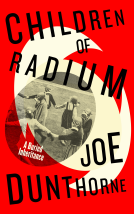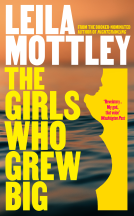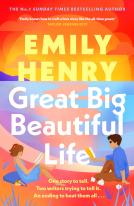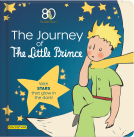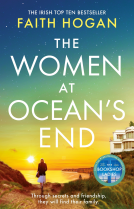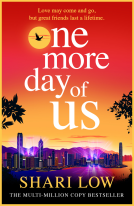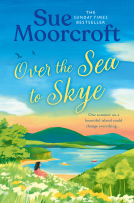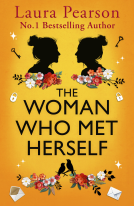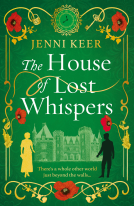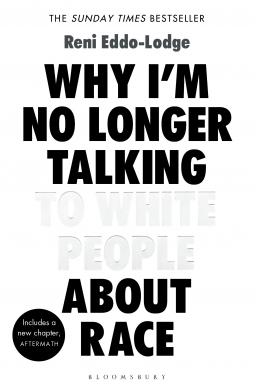
Why I’m No Longer Talking to White People About Race
by Reni Eddo-Lodge
This title was previously available on NetGalley and is now archived.
Send NetGalley books directly to your Kindle or Kindle app
1
To read on a Kindle or Kindle app, please add kindle@netgalley.com as an approved email address to receive files in your Amazon account. Click here for step-by-step instructions.
2
Also find your Kindle email address within your Amazon account, and enter it here.
Pub Date Mar 08 2018 | Archive Date Feb 09 2021
Talking about this book? Use #WhyImNoLongerTalkingToWhitePeopleAboutRace #NetGalley. More hashtag tips!
Description
THE NUMBER ONE BESTSELLER
WATERSTONES NON-FICTION BOOK OF THE MONTH
FOYLES NON-FICTION BOOK OF THE YEAR
BLACKWELL'S NON-FICTION BOOK OF THE YEAR
BRITISH BOOK AWARDS NON-FICTION: NARRATIVE BOOK OF THE YEAR
LONGLISTED FOR THE BAILLIE GIFFORD PRIZE FOR NON-FICTION
The book that sparked a national conversation. Exploring everything from eradicated black history to the inextricable link between class and race, Why I'm No Longer Talking to White People About Race is the essential handbook for anyone who wants to understand race relations in Britain today.
A Note From the Publisher
This is a Sampler of the Preface and first chapter.
Advance Praise
‘A revelation ... Undoubtedly essential’ - Spectator
‘This is a book that was begging to be written. This is the kind of book that demands a future where we’ll no longer need such a book. Essential’ - Marlon James, Man Booker Prize-Winner 2015
‘Set to blow apart the understanding of race relations in this country’ - Stylist
‘A wake-up call to a nation in denial about the structural and institutional racisms occurring in our homes, offices and communities’ - Observer
‘One of the most important books of 2017’ - Nikesh Shukla, editor of The Good Immigrant
‘Eye-opening ... Honest, opinionated and pretty kick-ass’ - Elle
‘Blistering … This book is essential reading for anyone even remotely interested in living in a fairer, kinder and more equal world’ - Paris Lees
‘Eviscerating ... A riveting deep-dive into the history and communication of race in Britain … This book is destined to become cult’ - Red
‘The black British Bible’ - Gal-Dem
‘Political, accessible and uncompromising’ - Guardian, Books of the Year
‘Vital dialogue from a powerful voice’ - Daily Telegraph
'The most important book for me this year' - Emma Watson
Available Editions
| EDITION | Paperback |
| ISBN | 9781408870587 |
| PRICE | £8.99 (GBP) |
Featured Reviews
 Richard L, Reviewer
Richard L, Reviewer
The preface is perhaps the reason this book came to be written. I find the arguments clear, logical and mostly within reason. But whether by design or to an oversight I question the title even as a clever phrase and title. To cease to communicate encourages segregation and scope for conflict. To stop talking to white people therefore is to label a whole race as intolerant and the product of ingrained racism. It cleverly whether intended or not mirrors a white persons assumed perspective that all people of colour are the same. Sadly this view seems to be born out however evidentially. Not by slight of hand, or selective texts but by a look at Black history from a British perspective.
I liked the comments highlighting how the white focus is on watering down the issue. So Black History Month can be rebranded to dwell on less contentious matters like Black Culture.
Also the training course for the police cadets should be in anti-racism rather than the softened approach favoured by the establishment to teach the subject as multiculturalism.
Impossible to judge a book by its cover or just a preface and one chapter. But one that is well written and throws light on educational ignorance on these matters is to be embraced.
It isn’t a comfortable read but it is good to listen to an articulated point of view well argued. No white person can be proud of our failings as a country; no sense of a more open society today can airbrush the past or realistically believe the struggle is over. This book might just help readers to want to grasp the issue and be part of the evolving solution. It is good to listen through reading and I for one would like to hear more from this bright voice and informative communicator.
 Elizabeth S, Reviewer
Elizabeth S, Reviewer
Personally, I found parts of this uncomfortable to read, particularly the first couple of chapters highlighted a lot of gaps in my own knowledge of my own country. I thought the book was extremely well written, each point Reni Edo-Lodge makes is well articulated and backed up with plenty of historical or statistical evidence. For what is often a difficult topic to discuss it's actually very readable, I find some non-fiction I bit too much like reading a school textbook and this was definitely not the case with this one. 5 stars.
 sharon a, Reviewer
sharon a, Reviewer
Very interesting book on racism in Britain. Tells stories of many incidents, people's comments and government comment. Heavy reading, some heartbreaking and disbelief. This book is greatly suited to Universities and colleges where this subject is broached.
 Jessica M, Librarian
Jessica M, Librarian
Thanks to Bloomsbury and Netgalley for a sampler of this book.
I was about 20 pages in when I went and bought a full copy. This is much needed reading, for everyone.
The book starts with the author's titular blog post. The preface explains how this is an act of self-preservation - white people are not aware and do not carry the weight of injustice, suffering and discrimination that Eddo-Lodge bears, and so come to these discussion from an unequal place. There cannot be open discussions of racism when white people are unaware of this history, and on the defensive that they do not know what pains have been suffered, and continue to be inflicted.
It only took a few pages into Chapter 1 for me to begin to feel overwhelmed and get a sense of this weight. The prominence of American Civil Rights (combined with Anglophilic devotion to a white idyll of Britannia) means the UK-based race riots, injustice, and activist movements have not got appropriate coverage.
I cannot comprehend what it would be like to live through segregation, colour bars, and race riots, to feel ostracised and demonised by my skin, and that's the whole point. This is beyond my comprehension because whiteness blinds us to the experiences of others. I can see why people of colour would not want to talk to me about this, because it's something so alien, so 'in the past', that I don't bring that same faith into it, that this is something that shapes our world. And this is only the Histories chapter I've been able to read so far! (This is not so distant, this is parents and grandparents.)
I found this sampler to be a very confronting look at just how cruel and racist Britain is, and it's something everyone needs to be aware of before entering into discussions on race relations. We can't know where we're going without knowing where we've come from. Because you don't know what happened doesn't mean it didn't.
 Renwick M, Reviewer
Renwick M, Reviewer
On a topic as important as race and racism, it is nearly impossible to review and judge a sampler book without the potential to introduce even further bias into the debate. Clearly, Renni Eddo-Lodge has strong and valid opinions and facts about the subject and will add to a controversy that has been around for a long time with no real signs of any resolution.
 Librarian 250745
Librarian 250745
Clearly a cery important book. I am trying to read as much as I can from Own Voice authors both fiction and non fiction. I can definitely concede that the world and western society is set up more with white people in mind. Eddo-Lodge makes several other good points and pushes me in the direction of considering some things I hadn't yet thought of. I really aporeciate this. I'm afraid I don't agree with everything, privilaged position or not. The author makes her case well but bases a lot of her argument on sweeping generality. And I get it. I'? Not black but I have faced enough discrimination in other areas of my life to understand the anger thst comes from being forced to assume the position of a lesser person because a( the world is not set up for you and b) tjose benefitting from it are paralysed by fear. (Fear of change, fear of the unknown, fear of doing anything to help lest they misstep and get labelled racist and tone deaf for daring to interfere.) It's a difficult situation and as sucky as it is, as unfair as it is, if you are the discriminated against it will fall to you to be the educatior whether this is a role you want or not. You can absolutely opt out but if you do then you don't get to complain that people who do not live your truth are getting it wrong. There is a lot of good stuff in this book but it's been written, presented and titled in a deliberately provocative and polarising way. This saddens me deeply. Sure there are some people who would never take any of it on board but lots of people want an equal system and want to confront and eradicate their own internalised prejudices. Anger is understandable but ultimately has no place in effecting fundamental change. I do not subscribe to the unspoken rule of 'I'm white so deliver small bites of the truth well coated with sugar please'. I want honesty. I want no punches pulled. But I need facts and an open dialogue. I am willing to do the painful communication stage and educate myself. I don't need to be patted on the gead for it. But I also need to know that the end goals are the same if you want me to spend time on something. And sometimes it doesn't feel ir read here that they are. Will come back to this book and still maintain it is a necessary read.
 Hannah W, Reviewer
Hannah W, Reviewer
And I'm off to Amazon to buy the whole book. I was pretty sure I'd love this but now having read the sample it's definitely a must read.
 Sassy B, Reviewer
Sassy B, Reviewer
Why I'm No Longer Talking to White People About Race is the essential handbook for anyone who wants to understand race relations in Britain today. It's not comfortable reading and I found it to be a terrific eye-opener highlighting the issue of black history and culture from a white person's point of view.
This review is only of the first chapter, but already I can tell this informative read is as much about the act of educating people and learning to be part of the solution and not the cause of racism in Britain. Diversity has many layers, it's not just black or white.
The title alone makes me want to challenge this book - would refusing to talk to white people about race really benefit anyone? Or is the title more for effect than anything else? Reni Eddo-Lodge certainly knows how to spark off interest!
The opinions here are voiced articulately and with flair, and are sure to provoke in depth analysis of society's prejudices and slanted interpretations. I'm considering buying the full book in order to delve into the deeper reasons for our behaviour, and to unravel the hidden histories of which many of us thought we already knew. Clearly, we have a lot more to learn.
 Byron V, Reviewer
Byron V, Reviewer
Having just read the first two chapters, I’m going to go out and read this book. Not only is it fascinating to read the history of immigration and slavery but it’s extremely relevant to me as it’s part of my own heritage. I found myself agreeing with pretty much everything Reni Eddo-Lodge writes. Books like this are so important. A great read.
This was an enthralling opening and I was immediately drawn into her style of writing. The author broached the topic in a tactful but direct manner and I felt she explained her points intricately.
 Kate R, Reviewer
Kate R, Reviewer
I received only a sample of this book for review. The prologue I found slightly difficult to get through but only because it was so well wrote and intellectual,
When the book started it was more accessible. Non fiction isn’t normally my thing but this was interesting and thought provoking.
 Anne M, Reviewer
Anne M, Reviewer
This is a well written, deeply researched and honest look at race in Britain and I am very glad I have read it. This should be on the shelves of every school library, every book club should talk about it and every training academy for police recruits should have to read it as part of their diversity training. It is that important. It is easy to dismiss the voice of BAME Britain saying "they" have the same rights and opportunities as everyone else but reading this, you soon see the truth is far more complex and the very fact that we can't have an honest conversation about racism is reflected in the title itself.
"...looking at our history shows racism does not erupt from nothing, rather it is embedded in British society. It's in the very core of how the state is set up. It's not external. It's in the system."
Before I read this book, I would have felt that statement was a bit strong and possibly unfair. After the book - having learned so much - I believe every word.
I was given a copy of this book by Netgalley in return for an honest review.
 Gemma R, Reviewer
Gemma R, Reviewer
Ok, I will be honest with you. The title of this book both scared and intrigued me, being a white person with a considerably privileged existence. But then again, after reading it, it seems that that was very possibly the point.
A profound and beautifully informed and written piece that clears the bullshit, educates exquisitely and takes a no nonsense approach to racism that yes, even in 2018 is still a very big issue within our society. I loved this book and read it in one sitting for fear of losing the spell under which I had fallen as soon as I opened its pages. This book is not an angry rant or a long lesson in right and wrong or a discusion about slavery but all of those things and much more.
This book should be taught in schools. It is a bite sized look at black history in Britain and shares the importance of this knowledge in informing our communities. A shared personal experience with living in an incredibly rigged system and a caring account of where we are going wrong, as we encounter this mammoth task of setting new standards, of equality and inclusion, in the modern world.
Highly recommend for everyone but even more so for young people of every race and gender.
[Considering only the preface and first chapter were contained in the preview, my review is going to be just about that as well, and the star rating is an average one, since apparently I can't go without a rating.]
This said, I must admit I wouldn’t have requested it if I had noticed sooner it was a preview: I much prefer reading & reviewing full books. Oh, well.
I get the voluntarily provoking title, which is loaded in itself, but I guess that’s a good way of testing oneself and see if we want to read further. Examples given in the first chapter didn’t surprise me either, much unfortunately.
Obviously, being ‘white’, I can’t relate directly, however, for some of the examples, well, just replace ‘white’ and ‘black’ by ‘men’ and ‘women’, and you get pretty much a similar effect. (Yes, I know, ‘not all men…’, just like ‘not all whites…’, but as usual with that kind argument: it’s not the point.) I’m thinking here of the preface more specifically: “You can see their eyes shut down and harden. It’s like treacle is poured into their ears, blocking up their ear canals. It’s like they can no longer hear us.” Or “They’ve never had to think about what it means, in power terms, to be white, so any time they’re vaguely reminded of this fact, they interpret it as an affront. Their eyes glaze over in boredom or widen in indignation. Their mouths start twitching as they get defensive. Their throats open up as they try to interrupt, itching to talk over you but not really listen, because they need to let you know that you’ve got it wrong.” In other words, I can’t fully relate, but pushing myself to imagine what it must be like isn’t a big stretch; I got into similar conversations with patronising people who thought they were right because they had a penis instead of a vagina (hint: they weren't).
Anyway.
Now, where I believe I can’t judge without having read it all, is because, for the moment, I can’t exactly tell in which direction the book is going. Is the title misleading, and the author does actually want dialogue? Or is it exactly what it says on the tin, and veering into ‘reverse racism’? (Note that as far as I’m concerned, racism is universal and goes every way and from any colour to anywards any colour, and it sucks, and I wish the human species as a whole would finally grow up, but then I suppose I’d also like to get a sports car and a penthouse in the City for my birthday, and it just won’t happen.)
So, yep… To be read fully later.
 Barbara B, Reviewer
Barbara B, Reviewer
A difficult read it you don't have any knowledge of predudist most of the story I know off as I have read some of these terrible stories from the time the slaves came over and the atrosaties they had to suffer were appalling from not being allowed to work to all the riots in which I think White people are more predudist than black any book which highlights this has to be a good thing and I think everyone should read this
 Amber W, Reviewer
Amber W, Reviewer
A stunning read. Yes, it’s challenging and eviscerating. Yes, it’s a passionate, accessible treatise. What ‘Why I’m No Longer......’ isn’t is hectoring or alienating. Reni Eddo-Lodge’s writing is dynamic, insightful and never patronising. Many of the things that may shock the reader came as a surprise to her too, and this is beautifully conveyed. As a result of reading this extract, I read the entire book- and I’d recommend this brilliantly researched, drafted and vital text to anyone.
I'd seen this book being talked about a lot on Twitter, and photographed a lot on Instagram. I wasn't sure how I felt about reading it. As a rule I tend to steer clear of books that have had a lot of hype, until all the fuss has died down and I can make a clearer assessment of whether it's something I genuinely want to read. This sample chapter from NetGalley was a much better way of making that decision. It's well written, it's very compelling and I have already learned a lot, just from the short section I was able to read here. I will definitely be buying a copy, and I feel it will be one of those books I end up buying multiple copies of and giving to other people to read.
 Philippa M, Reviewer
Philippa M, Reviewer
This sampler was very interesting and I will definitely be checking out the full book. As it is a sampler I cannot comment of the book as a whole, but from what I read I think it is well worth a read and it deals with an important topic.
 Jackie M, Book Trade Professional
Jackie M, Book Trade Professional
Not a comfortable read, but a good insight into some of the less desirable history of my country. So sad and frustrating to think about what is still going on on our doorstep today. I'm giving it 5 stars, because our attention should be drawn to these issues
 Eleanor K, Reviewer
Eleanor K, Reviewer
I received a free copy of the preface and first chapter of this book from Net Galley so my review can only cover these. This feels like an important book, making the reader look more closely at the history of Britain and at the racial imbalance in society that those in possession of white privilege like to avoid thinking about or pretend doesn’t exist. Eddo-Lodge has a powerful, compelling voice and touches on elements of British history that I (and many others) knew nothing about. It challenges what you think you know about the UK and race. I will certainly be purchasing the whole book straightaway as this feels like something we should all be reading.
 Val R, Reviewer
Val R, Reviewer
Thank you to NetGalley for the first chapter sample of this book to read in exchange for an honest review.
I found the history of the treatment of black people in the UK interesting - especially the relatively recent history in the last 100 years as I like to think that we are reasonable well-integrated with different races and ethnicities compared to the USA. Maybe we are but clearly not as much as I would like.
I've only seen the first chapter but I personally feel very anxious and nervous about the whole topic as I do not want to be discriminatory and judgemental about others but I find language around this topic stressful as it keeps evolving. In my lifetime we've had people referred to as white, black, coloured, people of colour, Asian, Afro-America, etc, etc. If I use any of those terms it's invariably wrong for the current times and considered offensive by some, especially younger people who are quick to criticise. Then there are those who think we should use none of those words as saying any is offensive and racist in itself but I then struggle to describe any person to another without being offensive over their race or any physical feature including hair colour. I think I need to write a book entitled 'Why I'm No Longer Talking To Anyone Else'.
 Shirley U, Reviewer
Shirley U, Reviewer
I was born in Birmingham, UK in the fifties and so have lived through much of the history in this book at a local level.
Despite this I still felt that it was really worth reading.
For instance, the history of the UK’s role in the slave industry and the treatment of Commonwealth soldiers were less well known to me and very painful to read. I hadn’t been aware that countries were incorrectly led to expect independence following their assistance in fighting for the UK.
I found the book well written and felt that the author successfully conveyed just how deep prejudice lies. I hope that it can make a difference.
Many thanks to Bloomsbury publishing and NetGalley for a copy of the book in return for an honest review.
 Silvia G, Reviewer
Silvia G, Reviewer
Such a good discovery this sample of this book that I will buy as soon as possible. I am a bit ashamed to say that I am one of those people completely ignorant on Black history...I grew up on a country barely touched by the war, the slaves trade and there is barely no racial diversity. Some of the facts explained on this book are quite unbelievable and yet, they are true! Raids on black houses just because, riots, shameful job offers...It triggered my interest and I cannot wait to know more with the rest of the book. I would recommend it to anyone interested
I would like to thank both NetGalley and Bloomsbury Publishing Plc for giving me the opportunity to read ‘Why I’m no longer talking to white people about race’ in exchange for my honest unbiased review.
Although this was just an extract of the book . Wiithin the first few chapters I read concerned mainly black history. From this short piece of the book I could identify how important this texted is part of modern day history.
The way this has been written gives you the reader a clue at how the author has given this great thought to the arguments which are written in a very clear concise way.
It gives you an outlook at how the differences in race were so apparent. I did find some of it uncomfortable to read because of the past behaviour of our fellow countryman to their fellow countrymen/women even if back then it was an unequal society (which is so wrong)
Eye opening. Straight talking, it hides nothing. Does not beat around the bush about things. The author tackles them head on.
I have now got the book and read it in its complete form as I personally felt that if I didn’t than I would be no better than some of the people in the book and hiding away from what had actually happened in history.
 Eiain L, Reviewer
Eiain L, Reviewer
A very interesting read. I, like many others, did not think about race and the racism that comes with it. I have many black friends, and it is not something we have ever spoken about, until now. Reni talks of the battles that people of race have had to endure just be part of the UK, battles that I remember (Race Riots) and others that I had no idea about. As with a lot of things in a predominantly white society, things are swept under the carpet, and our government should be ashamed of their actions in the past, and indeed the present.
I feel this should be a book read by everyone.
 Rebekah L, Reviewer
Rebekah L, Reviewer
I don’t often review non-fiction, but Why I’m No Longer Talking To White People About Race is exactly what the Observer called it, ‘A wake-up call to a nation in denial’. I finished the book – mine is the edition with the new Aftermath chapter – and all I wanted to do was read more from Reni Eddo-Lodge.
With a brief overview of black British history (far more in depth than anything offered in schools, where the focus remains on black American civil rights, as if there has never been a need for a civil rights struggle in Britain), a clear depiction of institutional racism (not that we should need reminding after the Windrush debacle and those Home Office deportation targets), what white privilege really is, why and how white privilege is afraid, how feminism interacts with race, and an unpicking of race and class, the book is a call to action.
We need a broader, more accessible British history that accounts fully for the wrongs of the past in an attempt to redress racism in the system as well as the individual. To do that, the white privileged, people like me, need to take a hard look at themselves. We need to bring something to the conversation about race, once we’ve really sat back and listened.
This book is a great place to start listening and thinking about how to act for equality. I can’t recommend it enough. I’ll be reading it again.
 Liv F, Reviewer
Liv F, Reviewer
Urgently need the full thing! The writing is exquisite, I love everything about it I now understand why so many people love this book!
 Verity W, Reviewer
Verity W, Reviewer
I found this sampler so compelling and thought provoking that I went out and bought the book. From what I've read so far, this looks set to be a really important perspective on society today and that challenges that some groups face that others are completely oblivious too.
I absolutely devoured the sampler of this within a sitting and was a tad sad when I got to the end. I am a sociology major and am obsessed with historical non-fiction. This book really opened my eyes as to the context of black British citizens throughout time and the significant contributions that individuals like Doctor Harold Moody who published a Quarterly Journal named The Keys through an organisation called The League of Coloured People's (who he himself had formed in 1931). Australia too has a black history and it is devastating to read that the "motherland" has the same disgusting and revolting history of mistreating and taking advantage of PoC. My knowledge of the history and treatment of PoC is very limited and this book gave me a firm "sit down, read and absorb and don't say a word", because the facts and the history that I was given is vital in understanding the history of the U.K. Each and every word and argument presented throughout the first chapter is compelling and written with conviction. The point is driven very hard and I personally believe that even the first chapter is pieces of history that every white person should know.
As a person who studied sociology and cultural studies I am not ignorant to the history of colonised nations, however I am ignorant and was not aware of the extent and impact that colonisation had on African and Asian nations. I personally felt uncomfortable reading about some of the experiences of past individuals and how they were treated, however it is important that I am made uncomfortable in this circumstance as should others.
 Reviewer 492107
Reviewer 492107
I’ve been wanting to read this book since I first heard about it, but having heard and read mixed reviews I wasn’t sure whether it would be my sort of book. But after reading the first few chapters I can say I have now added it to the top of my list of books to read. Looking forward to reading the rest of the book very soon I hope.
Only reading one chapter of a book can make you feel shortchanged. Not with this book. I was totally engrossed in it, so desperate to read more I've purchased it.
The first chapter is an indepth look at the history concerning race relations in the U.K. Something I had no idea about. A well written, and at some times shocking chapter. I recommend everyone to read it.
 Esther S, Reviewer
Esther S, Reviewer
My first reaction to the title of this book was: ‘click-bait’.
I took the bait because although I expected to read an angry, vaguely articulate rant I did empathize with her frustration in talking with people who 'just don't get it' and I also felt that maybe she could present a POV I needed to hear from the country where I grow up. Something a little different to the more prolific stories from people of colour growing up in the US.
On reflection I suspected the title was probably a rash statement made by the author based on frustration rather than any expectation of future behavior.
And in a way I was right as the author tells us that following the media attention generated by such a provocative statement she ended up spending an inordinate amount of her time talking to white people about race.
The initial blog was included at the beginning and was more clam and moderate than I would have expected considering the title.
The main body of the book is a concise and interesting history of racist towards people of colour in England. Not all of it was new to me and I lived through the later events mentioned, the descriptions in the book giving a different point of view to that presented at the time by the television and print news.
I think that due to the title some people will be disappointed that this is not a provocative diatribe on racism and white privilege. However I would recommend it and a good basis for understanding prejudice against people of colour in England.
The media is flooded with stories of such racism in the United States and many people read these stories and because ‘it isn’t like that in Britain’ can convince themselves that racism isn’t a problem in the UK.
This book is a good basis for showing readers the fallacy of this assumption. It will lead them to an understanding of prejudice against people of colour in Britain and, hopefully, will encourage people to strive for the necessary change.
 Reviewer 464262
Reviewer 464262
This is a great introduction to the book. It is an important subject and I look forward to reading the rest of it.
 sara m, Reviewer
sara m, Reviewer
A very important and timely book in the vein of The Good Immigrant, I will be pushing this into many peoples hands; readers or not.
 Charlotte P, Reviewer
Charlotte P, Reviewer
This is such an important and interesting book. It isn't always easy to read but is definitely enlightening.
Really interesting read and vocalises a lot of issues I have, as a person of middle-eastern descent, had historically discussing race.
I will definitely be purchasing the book to continue reading.
This is an angry and illuminating account of British racism. It covers so much just in the first chapter on key moments in the history of British racism from slavery, right up to the 1980s. It jumps from one story to another quickly and is a lot to take in but it is rich and so necessary. The examples of racism given are infuriating to read about, and show how little Brits know of their history. I would recommend that everyone reads this book, as long as you are prepared to be confronted with some uncomfortable truths. I will be reading the rest and look forward to learning even more.
After reading this excerpt of the introduction and first chapter, I am definitely going to head out to my University library and borrow the full novel to read over the Summer. I feel wrong rating this before I've read the whole thing, but this excerpt alone was a solid 5 stars from me.
I'm white and British, going into my second year of university in September, and it frustrates me so much that I never learnt any of this in school. We did a unit on the civil rights movement in America when I was in year 10 and 11 (read: going on 4 ago), and next semester I'm doing a unit on ethnicity and diversity in American literature, but I've never covered anything to do with racism in British history. I wish I had my own full copy of this to highlight and keep on my bookshelf. I got frustrated enough reading the first chapter, I don't know how I'll feel reading the rest.
 jane l, Educator
jane l, Educator
Interesting (short!) read from the perspective of a young, black, British woman whose eponymous blog post went viral, and which is explored more fully here. Its focus appears to be largely on immigration, so don't expect anything more expansive than something you might find in the Long Reads section of The Guardian, but its well-researched and has plenty of food for thought and discussion. I would like to hear more on other aspects of the author's experience as her voice is clear and frank.
 Kirsty L, Reviewer
Kirsty L, Reviewer
Vital reading for every single person in the UK (and elsewhere). Even if us white people like to think we're woke, there's so much we don't know. Reading this is Step 1 in our education.
On a critical level I wish it had been longer as I loved Eddo-Lodge's writing style and really wanted to know more on the subject, but I will consider it a starter book for further reading.
 Isabell K, Reviewer
Isabell K, Reviewer
Racism is still a very dominant topic which we still have to fight nowadays. Probably more than ever. I almost feel incapable of rating this sampler but it does give a great inside into the book and I think that the content of this book can also be applied to countires other than Britain. This book is a very thought provoking book and I'll definitely buy a copy of this book.
 Maria H, Reviewer
Maria H, Reviewer
Searing, honest and oftentimes uncomfortable to read, 'Why I'm No Longer Talking to White People About Race' cuts to the heart of institutional racism and how societal structures are set up to disadvantage people of colour, especially women. This timely and relevant book and should be required reading.
 Gemma K, Educator
Gemma K, Educator
When I received this I thought it was the whole book - I had heard so much about this book that I was dying to read it so was disappointed when I noticed it was just an extract. Nevertheless I loved the extract and devoured it in one go. It was thought-provoking and highly interesting and I look forward to reading the whole book.
